I'm trying to create a LINQ query which is a derivative of SelectMany. I have N items:
new {
{ Text = "Hello", Width = 2 },
{ Text = "Something else", Width = 1 },
{ Text = "Another", Width = 1 },
{ Text = "Extra-wide", Width = 3 },
{ Text = "Random", Width = 1 }
}
I would like the result to be a List<List<object>>(), where:
List<List<object>> = new {
// first "row"
{
{ Text = "Hello", Width = 2 },
{ Text = "Something else", Width = 1 },
{ Text = "Another", Width = 1 }
},
// second "row"
{
{ Text = "Extra-wide", Width = 3 },
{ Text = "Random", Width = 1 }
}
}
So the items are grouped into "rows" where Sum(width) in the internal List is less than or equal to a number (maxWidth - in my instance, 4). It's kinda a derivative of GroupBy, but the GroupBy is dependent on earlier values in the array - which is where I get stumped.
Any ideas would be appreciated.
